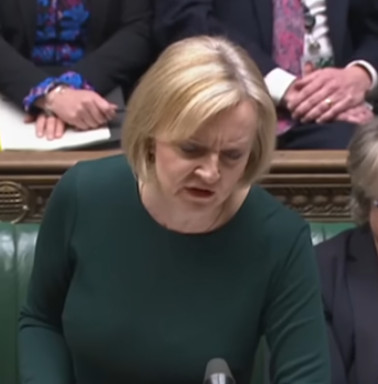 The temptation for Liz Truss to call a General Election soon after becoming Tory leader might be too much to resist. A shiny new leader might enable them to win. But I’m wondering about the other side: might they be planning to lose? In an ideal world they’d have done that before Boris Johnson’s position became completely untenable, but there’s a narrow window in which Truss might be able to lead per party to defeat and survive as leader by blaming her predecessor.
The temptation for Liz Truss to call a General Election soon after becoming Tory leader might be too much to resist. A shiny new leader might enable them to win. But I’m wondering about the other side: might they be planning to lose? In an ideal world they’d have done that before Boris Johnson’s position became completely untenable, but there’s a narrow window in which Truss might be able to lead per party to defeat and survive as leader by blaming her predecessor.
We need to think about this because it would inform our campaign and shape some difficult decisions afterwards.
Why might the Tories want to lose an election?
The economic prospects are grim. Everywhere there’s the long shadow of Covid, the war in Ukraine, inflation going up and growth going down. For the UK that’s made worse by the self-inflicted damage of Brexit. Over the summer we’ve seen some strikes, and we’re bound to see more as people seek pay rises to keep pace with inflation.
If Labour come to power early in the autumn it would be possible – though unjustified and unfair – for the Tories to talk about their “economic mis-management”, make parallels with the “winter of discontent” and look forward to returning to power.
Economic reality means it’s almost inevitable that the UK will need to seek access to the EU’s Single Market and Customs Union. Keir Starmer is still planning to “make Brexit work”. The Tories might well be glad to see Labour rather than them rouse the ire of Brexiteers by making a U-turn.
By 2024, Covid will be far enough in the past to mean the Tories can’t blame it for the self-inflicted economic harm caused by Brexit and should expect to face the wrath of the electorate for “getting Brexit done”. They’ll deserve a hammering. But now? A hung parliament, or a slim Labour majority (making them vulnerable to their left wing extreme) would be a gift for the Tories, and enable them to do real harm to Labour, and Liberal Democrats if we support them.
The problem of a hung parliament
Liberal Democrats tend to do best when Labour are electable, so “middle England” can’t be frightened into voting Conservative for fear of a Labour.
Liberal Democrats and Labour will both be taking seats from the Tories.
With the SNP having taken many seats in Scotland from Labour, it’s now much harder for Labour to achieve a majority.
Instinctively Liberal Democrats are likely to follow Churchill’s dictum – that an MP’s duty is to the good of the country, then of their constituents, then of their party. Instinctively we’d support Labour in order to enable stable government – while hoping to moderate their far left.
But the debacle over tuition fees would be a storm in a teacup by comparison with the betrayal many Liberal Democrats and Liberal Democrat voters would feel if Liberal Democrats supported a government with a promise to “make Brexit work”.
The innocent response is that the more MPs we have, the easier it would be to apply pressure. How do we get there?
What are the campaign promises we’d need to make to both be faithful to our belief that rejoining the EU is very much in the national interest, and enable us to support Labour in sorting out the Tory mess?
There might be some room for manoeuvre because an Association Agreement giving at least partial access to the Single Market and Customs Union could be consistent with Labour’s promises and could also be the first step on the path to rejoining.
Is it enough to promise to work for “improved access to the Single Market and Customs Union” or “a democratic way to reverse the mistake of Brexit”?
Postscript
One thing we do need to do is remind people that letting the Prime Minister set the date of an election encourages them to put their party first. A General Election this autumn would be bare-faced opportunism from the Tories.
